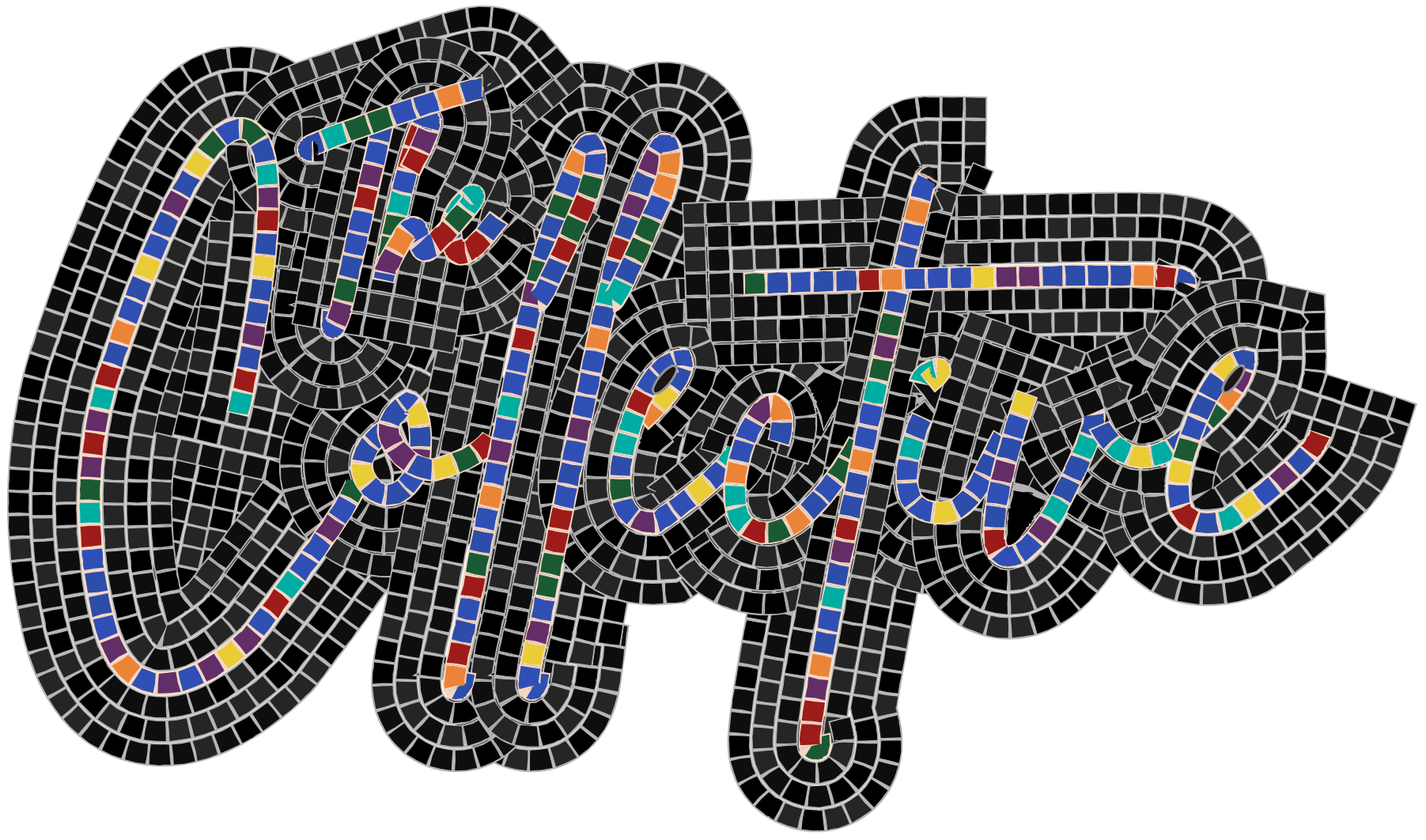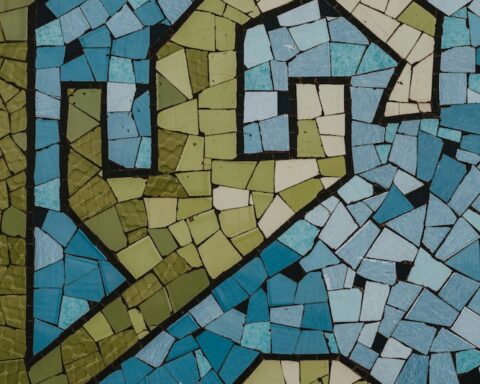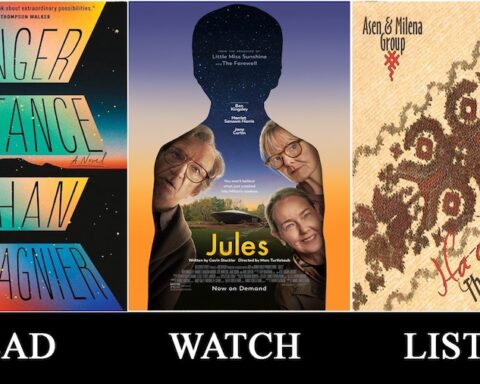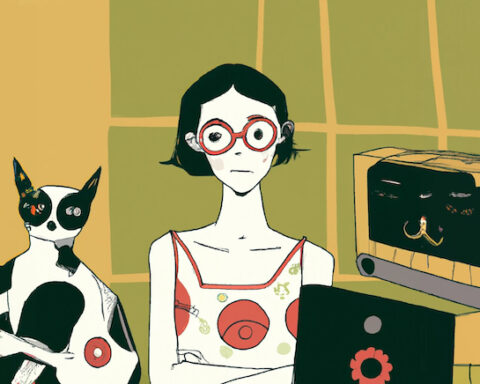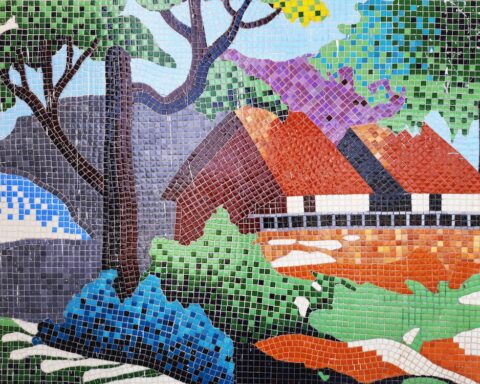The month is May 2022. I have just finished my graduate composition recital, and I could not have asked for a better performance. The pieces were well received, the audience and performers had a great time, and suddenly the biggest artistic project of my life so far was complete. Yet beneath the joy and satisfaction at the success, I could not fight this feeling that there was this void in my life, now that a project that I had been working on for over two years was finally complete. I knew that I needed a break before embarking on another major project, yet I was still consistently anxious about what that next project should be.
In the year since graduating, I have done a lot of reflecting on my years in music school, nearly all of them spent on big projects, many of which did not satisfy me artistically the way that my master’s recital did. I thought about the ways my university both helped and hindered these projects, and about what aspects of my anxiety stemmed from my own struggles with mental health or from the environment I was in. This period of reflection taught me a lot about burnout, success, and project management, and how my academic environment did not always give me the proper tools to handle these things. Music schools are often caught between giving students the artistic space to grow and supplying students with the career skills they need to succeed in the professional world. Now out of school, I have been able to compare my recent professional experiences with the multiple projects I did as a full-time student and see how the academic environment aggravated my feelings of burnout and anxiety, leaving me with questions of how to pursue creative work in a challenging economic world.
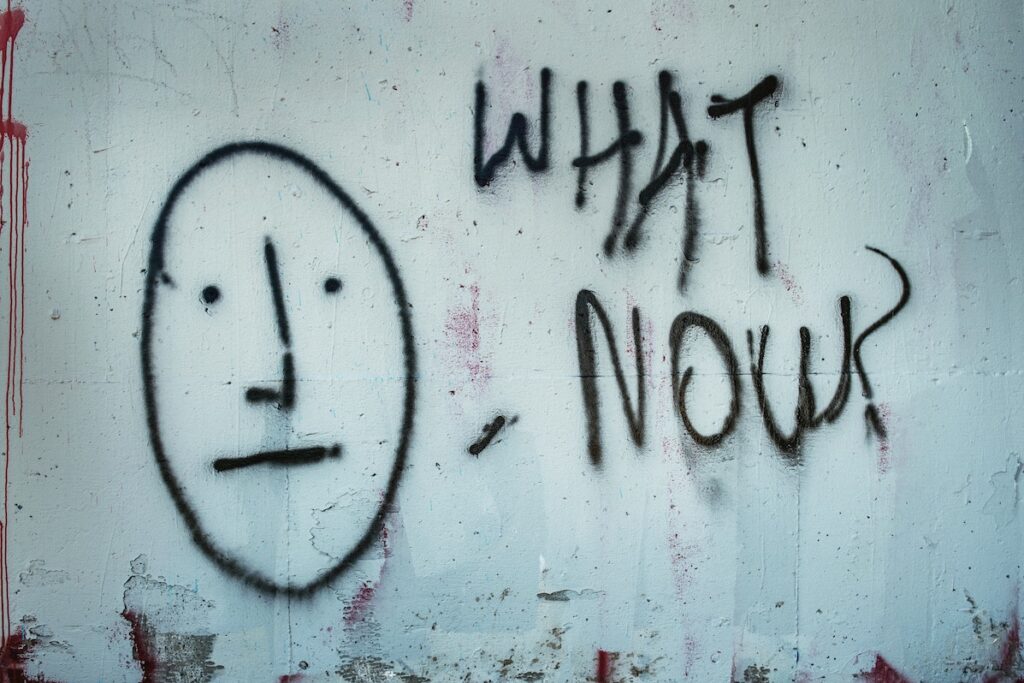
I wanted to learn more about this anxiety that I was feeling, so I started reading about artistic burnout.[1] I was surprised by how many of the burnout symptoms aligned with mine and those of my musical colleagues, including “anxiety and depression, higher frequency of illness, loss of confidence in academic abilities,” and many more things that nearly every peer I attended music school with has experienced. Between classes, rehearsals, and personal practice, few degrees make as little room for extracurricular activities as music does, and students find themselves so overextended that caring for themselves becomes secondary to completing degree requirements. This approach was often normalized; attending rehearsals when sick was seen as a badge of honor. Looking for answers in articles did not help; tips on preventing burnout included activities like more exercise, more time with friends and family, and taking one day off a week, all great suggestions but impractical given the demands of a full-time music major.
Lacking the time and bandwidth to be a part of the creative endeavors I valued, simply because I was busy fulfilling institutional requirements, was a constant source of anxiety for me as a music student. That anxiety came to a head when I founded a chamber choir on campus in 2019. We named the group Leading Tone, and I envisioned us performing a combination of jazz and pop arrangements mixed with the occasional original composition; functionally it would be a fusion of groups like Voces8 and Pentatonix. There was a healthy amount of interest in the group among my close friends, as well as musicians who were new to me, so in September of 2019 we had our first rehearsal with about ten singers. The rehearsals went well, but attendance quickly became a problem. Between September 2019 and March 2020, we had only one weekly rehearsal where every member was present and on time (including myself). Now, it would be easy to assume that the members of the group were not dedicated or committed, but that would be false; every member genuinely loved the group and wanted to be a part of it. The reality was that we were all high-level musicians, and therefore often busy with other obligations. We had members who were in five other choirs, members who performed in operas across the country, and members who were heavily involved in their communities. I never expected them to prioritize Leading Tone over their obligations, but I did not foresee that even having the time to rehearse was going to present such an insurmountable problem. During the COVID-19 pandemic when we switched to virtual projects, the same issue persisted. Many of the members were taking classes or working virtually, so they had no more free time than before, and other members quit music or singing entirely due to the financial struggles of the pandemic. We did end up recording a few arrangements that I am very proud of, and every member involved with the group has always spoken highly of their experience in it, yet we have been in hiatus ever since 2021. Leading Tone was not unique in this outcome; many student-run music ensembles started by my peers have since folded. The struggle I had with Leading Tone is just one example of how the structure of the average music degree leaves little to no time for extra-curricular music activities that would enable students to practice their entrepreneurship and grow their creativity. Between multiple theory and aural skills classes, multiple ensemble commitments, and multiple recital stipulations, students often must turn down or deprioritize projects that do not fit into their academic program. Creativity is extremely stifled when no space is made for non-academic pursuits.
Another blind spot in higher music education that has caused me considerable anxiety is the gap between craft skills and career skills. For example, I loved my composition studio, filled with world-class professors, and I counted my fellow student composers as friends. Through this program I greatly improved my compositional craft, and learned a great deal about orchestration, notation, and music history. Yet as a studio we rarely discussed career advice. How much should we be paid for a commission? How much should we pay musicians that play on our pieces? How do we self-publish our music? Answers to these questions were often met with broad and vague answers, or only addressed on a case-by-case basis. Moreover, I’m not the only one who feels left in the dark. I was recently watching a video by YouTube pianist Nahre Sol in which she discussed the seven things she wished she had learned in music school.[2] Nahre Sol graduated from Juilliard, often considered one of the best music schools in the United States, and even she felt like there were blind spots in her musical knowledge. Some of the things she expressed wanting to know more about included the different career paths available to musicians, how to be an effective music teacher, and the right way to pivot away from a music career. I can think of so many of my peers who would have greatly benefitted from a program that taught these things as well.
The gap between my craft skills and career skills became very clear in 2021 when I recorded my first album of my original compositions. One of my closest friends, who is an avid record producer and engineer, had the idea to record an album of my original art songs. We first talked about this in late 2020, when it became safer for small music groups to meet and rehearse but was not yet safe for full audiences, so a recording project that was not intended for live performance seemed perfect! As we started putting together a roster and schedule, a few hurdles began to arise. Talking about performer compensation, we realized we had no template with which to determine how much to pay each musician for varying levels of involvement. Resources online gave conflicting information, and trying to solve it case by case led to embarrassing moments, including when one musician confronted us about not getting paid as much as another. We were also stumped when a player asked us to draft a contract for them to sign, something we had literally never done before. We also came across many fundraising hurdles and ended up having to finance the project ourselves.
Luckily, when we finally had the official recording sessions in May 2021, they were a huge success! The recordings turned out well, the musicians had a great time, and the producer and I were both very happy with the work we did. However, we are still in the process of editing the audio and video recordings together, because we both started very demanding jobs shortly after the sessions, leaving us with little time to work on completing the project. I am sure I can speak for many readers when I say: after you have worked a demanding fifty- to sixty-hour work week and you get a day or some time off, you would likely much rather spend time relaxing with your loved ones than immediately jumping into creative pursuits. As much as I wanted to finish the album, I had to ask myself, “Would I rather work on this album, or watch a movie, or go to the park with my partner?” And I know my producer had similar conversations with his partner. Though the project was ultimately successful, we have not even had the time or energy to bring all that work to fruition. Our lives are so dominated by work that in our free time we must decide between relaxing and creating, when in an ideal world we should have had ample space for both.
I often think about how much smoother the process of making the album would have been had I come into it with a greater understanding of the music business. The experience showed me all the ways in which our academic environments tend to emphasize craft skills over career skills, and rarely are the intersections of those two discussed. Even though I had improved significantly as a composer throughout my education, my knowledge of the music and arts businesses has not increased nearly to the same level. It could be argued that I could teach myself these things, but then what would be the point of seeking formal education in the first place?

Another aspect of how music is treated in academia that I think can be very damaging to students, and ultimately cause career burnout, is how final recitals and projects are framed. Students spend so many years practicing and rehearsing for their big moment, and when the day finally comes, it is a huge success, but some never perform on a stage again. For performance or composition majors who want to pursue music careers after graduating, recitals should be ideal projects to set the tone for what kind of music they want to make and what kind of artist they want to be, but these projects are often framed as the end of something rather than the beginning of something greater. This kind of thinking can lead students to feeling that the peak of their artistic careers is already behind them. Recently reading an article about post-project depression,[3] I was struck by how much I related to these symptoms, and how these experiences were never discussed in our classes. One solution the article offers is to “look for new inspiration” if exhausted from a previous project. I often think about famed Broadway director Harold Prince, who said that “he always has a meeting about his next musical after opening night of his current one.”[4] How many music students attend concerts the week after their recitals? Many are so burned out by the process that they just want to take a break from music entirely. As healthy and necessary as that can be, performing a big concert should inspire a musician so much that they cannot wait to do it again.
My first time experiencing post-project depression was in 2022 after completing my two most successful projects so far: my graduate composition recital and the premiere of my suite for flute and harp at the Georgia Music Teachers Association Conference, for which I was the commissioned composer of the year. Both projects were extremely successful, but I took for granted how empty I would feel after they were finished. Two negative thoughts kept creeping into my head in regards to these projects. One was that the classical music industry is so difficult to break into that the quality of these projects would not even move the needle for me. I can work as hard and write as well as I want, but without agents, managers, a robust social media presence, etc… I can only go so far. It is as if all the work that I put into my craft is wasted because I did not put the same amount of work into developing good career skills. The other thought that gave me constant anxiety is that these projects were somehow my peak. Either I might never write anything as good again or, even when I do, I may not be able to get the same caliber of musicians together. Deep down I know that both fears stem from my anxiety about succeeding in a world where I am constantly burned out, a world in which my art must have some tangible measure of success to be of any value.

Because of these fears, I find myself struggling on what to do next. I have more free time now that I am out of school; I have a network of people who are willing to work with me; yet I am still missing the motivation I had as a student. I recently rewatched a YouTube video[5] about the making of the cast album of the Broadway musical Once, one of my favorite musicals. I remember when I first saw this video over five years ago, I was so inspired with how much the singers and musicians truly loved what they were working on. Fast forward to rewatching it this year and all these questions suddenly popped into my head: “How much are these singers getting paid, and are they unionized?” “How much does this recording equipment cost, and how much studio time did they get?” “This singer’s technique is a little off; who was their voice teacher?” All these questions are important things for a professional musician to answer, but I find that trying to answer them paralyzes me from pursuing new projects. Rather than feeling creative, all I feel is my perceived lack of time, money, or resources. Because of the strains and realities of capitalistic pressure in both the arts and academia, a video that used to give me joy suddenly gives me anxiety.
Capitalistic systems have certainly negatively influenced academic environments, leading students to focus more on creating product than on creating art. And although most of our “professors have long savored their position outside of commercial systems,” they, too, are subject to the pressures of a capitalistic environment.[6] As federal and state governments cut funding to higher education, faculty have had to shift their energy to research and opportunities that bring more money and attention to the university, often at the expense of the students. The darker subtext to this is how many university administrations exploit their power dynamic by hiring more non-tenure track professors who have less clout and power, giving the university less opposition in any revenue generating goals it sets for itself. This power imbalance can trickle down all the way to music students, who often are unable to get the support and resources they need from their professors. Most music students attend and invest a great deal of money into higher education in order to learn about their craft from the masters of that craft. But the structure of academic capitalism hinders that exchange, and perpetuates the cycle of overworked professors and under-taught or unprepared students.

It is often said that college is the time when young adults grow into themselves, and learn to explore and hone their crafts and passions. However, without a more comprehensive education that includes the reality of the industry in which the student will be working, thousands of students every year enter the workforce unprepared for success and without the emotional and physical stamina to withstand the uphill climb. In the twelve months since I have graduated, I have tried to be kinder to myself, and remind myself that given what I was taught and the environment I was in, I am doing the best that I can. To avoid burnout, I have been deliberate and strategic in my compositions. I have been writing smaller pieces for musicians that I am close to, and making more time for both social leisure and creative pursuits. I should be proud of the projects that I have completed so far, and their success should reduce my anxiety more than they add to it. I am forever grateful for my years in music school, for they were truly some of the best years of my life; but now that I am aware of the blind spots in my music education, it is time for me to close those blind spots, one by one.
[1] Nair, M. (2022, December 12). Academic Burnout: How to Prevent it and What to Do: Uopeople. University of the People. Retrieved April 3, 2023, from https://www.uopeople.edu/blog/what-is-academic-burnout/
[2] Nahre Sol. (2022). YouTube. Retrieved April 3, 2023, from https://www.youtube.com/watch?v=yDjI8iphbhU.
[3] Completion to Depletion: 5 Ways to Cope with Post-project Depression. Transitioning Your Life. (2022, May 9). Retrieved April 3, 2023, from https://www.transitioningyourlife.com/five-ways-cope-post-project-depression/
[4] Prince, Harold. Sense of Occasion. Hal Leonard Corporation, 2017.
[5] YouTube. (2012, March 14). Original Broadway Cast Recording – The Making of Once: A New Musical. YouTube. Retrieved April 3, 2023, from https://www.youtube.com/watch?v=xudehOT1ayE
[6] Koenig, R. (2019, November 25). ‘Academic Capitalism’ is Reshaping Faculty Life. What Does that Mean? – edsurge news. EdSurge. Retrieved April 3, 2023, from https://www.edsurge.com/news/2019-11-25-academic-capitalism-is-reshaping-faculty-life-what-does-that-mean
